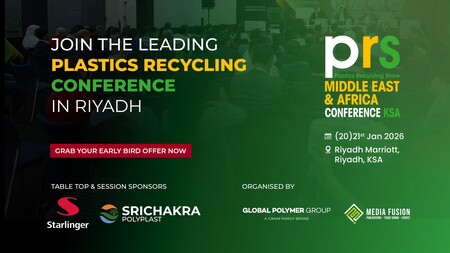
PRS ME&A 2026 Conference KSA
Running in addition to the PRS ME&A event in Dubai, this highly-anticipated conference will take place on 20 and 21 January 2026 in Riyadh, Kingdom of Saudi Arabia. Click below to find out more.
The event will connect delegates to the latest information and technology developments in the fast-changing plastics recycling industry. It will bring together thought leaders, innovators and technology providers. PRS ME&A will comprise an exhibition with a high-level conference.
The exhibition will showcase the latest solutions and technologies available on the market. At the conference that runs alongside the show, international experts will address key themes including circular economy, regulations, challenges, opportunities, innovations, technologies and trends, and share insights and experiences from across the plastics sector to promote a green future.
The 4th edition of the Plastics Recycling Show Middle East & Africa (PRS ME&A) will take place at the Dubai World Trade Centre in Dubai, United Arab Emirates, on 28-30 September 2026.
The three-day exhibition and conference is the only event in the region dedicated specifically to plastics recycling.
